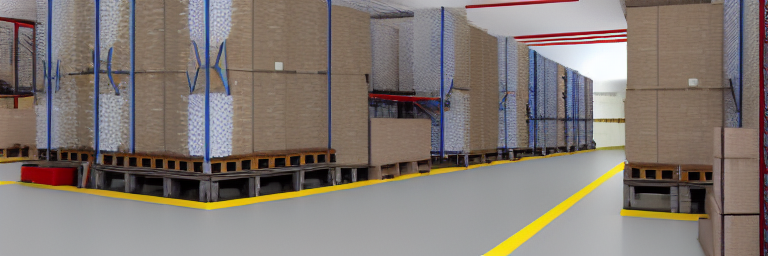Warehouse Management Software (WMS)
The purpose of warehouse management software is to provide a centralized system for managing inventory and orders within a warehouse. This type of software typically includes features for tracking inventory levels, managing orders and shipping, and generating reports. Warehouse management software can help to improve efficiency and accuracy within a warehouse, and can also provide visibility into warehouse operations for managers and other stakeholders.
Advantages to Warehouse Management Software (WMS)
There are many advantages of warehouse management software. Perhaps the most obvious is that it can help to improve the efficiency of your warehouse operations. By automating tasks and providing real–time visibility into inventory levels, warehouse management software can help you to avoid stock–outs and minimize the need for manual inventory checks.
Another advantage of warehouse management software is that it can help to improve customer satisfaction. By providing accurate and up-to-date information on inventory levels and order status, warehouse management software can help you to keep your customers informed and reduce the likelihood of customer service issues.
In addition, warehouse management software can help to reduce costs. By automating tasks and improving warehouse efficiency, warehouse management software can help you to save on labor costs and improve your bottom line.
Considerations for WMS Solutions
There are many considerations with warehouse management software, as this type of software can be very complex. The main considerations include the type of business and the specific needs of the business, as well as the budget. Other considerations include the size of the warehouse, the number of employees, and the level of experience with using software.
Off-the-shelf WMS solutions are usually less expensive than custom solutions, since they do not require the development of new software. They may also be easier to implement, since they are already designed and tested. However, off-the-shelf solutions may not be as flexible as custom solutions, and they may not be able to be tailored to the specific needs of the business.
Custom WMS solutions can be more expensive to develop, but they offer the advantage of being able to be tailored specifically to the needs of the business. This can make them more effective in meeting the business’s goals. However, custom solutions may take longer to develop and test, and they may be more difficult to implement.
The Future of Warehouse Management Software (WMS)
The future of warehouse management software is very exciting. With the continued advancement of technology, the capabilities of these software systems will continue to increase. They will be able to handle larger volumes of data and be able to automate more tasks. This will allow warehouses to become more efficient and productive and will help to reduce the cost of running them. Additionally, the use of artificial intelligence and machine learning will allow these systems to become even more effective at managing inventory and predicting demand.
This powerful tool has already revolutionized the way businesses operate and has saved organizations millions of dollars in lost productivity. As more businesses adopt WMS, the software will continue to evolve to meet the changing needs of users. In the future, we can expect to see even more features and functionality added to WMS to make it even more user-friendly and efficient.

